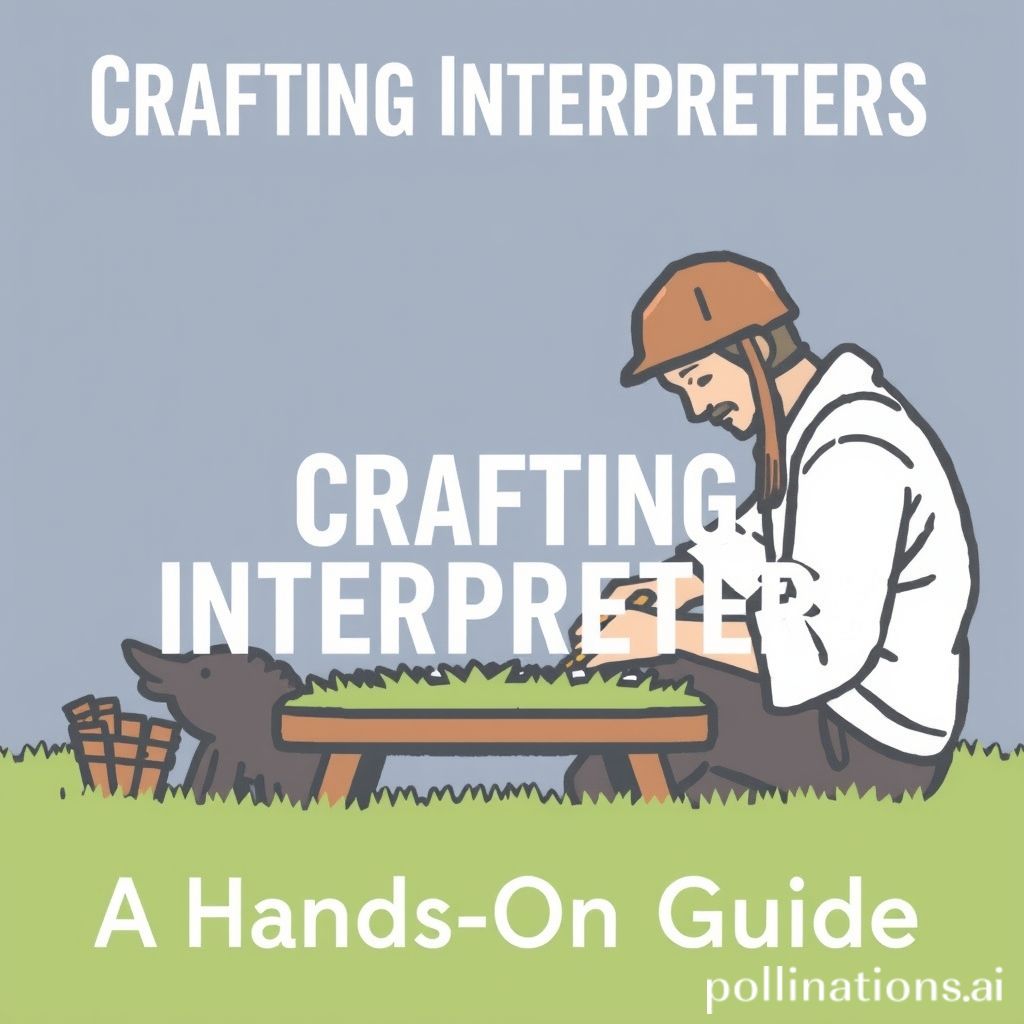 ```html
```html
Crafting Interpreters: A Journey into the Heart of Code Execution
"Crafting Interpreters" by Robert Nystrom is more than just a book; it's a comprehensive and incredibly rewarding journey into the inner workings of programming languages. It's a hands-on guide that demystifies the process of building interpreters, taking you from a basic understanding of programming concepts to creating a fully functional interpreter for a custom language.
The Lox Language: A Vehicle for Learning
The book revolves around building an interpreter for a new language called Lox. Lox is deliberately designed to be simple enough to be manageable, yet complex enough to illustrate a wide range of interpreter design principles. This careful balance makes the learning process both engaging and practical. You're not just passively reading about concepts; you're actively implementing them and seeing them come to life.
Two Paths to Interpretation: Tree-Walk and Bytecode
A significant strength of "Crafting Interpreters" is that it presents two distinct approaches to interpreter design:
- Tree-Walk Interpreter: This approach directly interprets the abstract syntax tree (AST) of the program. It's a relatively straightforward method, ideal for gaining a foundational understanding of interpreter mechanics. The book guides you through parsing, semantic analysis, and evaluation, all within the context of the tree-walk paradigm.
- Bytecode Interpreter: This more advanced approach involves compiling the source code into bytecode, a lower-level representation that is then executed by a virtual machine. This path offers significant performance improvements and introduces concepts like stack-based execution and instruction sets.
By implementing both types of interpreters for Lox, you gain a deep appreciation for the trade-offs involved in different interpreter architectures. You understand when a simple tree-walk interpreter might suffice and when the performance benefits of a bytecode interpreter become necessary.
Beyond the Code: Understanding the Why
While the book is heavily focused on practical implementation, it doesn't shy away from explaining the underlying theory. Nystrom provides clear and concise explanations of concepts like:
- Parsing Techniques: From recursive descent parsing to handling precedence and associativity, the book covers the fundamentals of turning source code into a structured representation.
- Semantic Analysis: Validating the meaning and correctness of the program, including type checking and scope resolution.
- Memory Management: Understanding how memory is allocated and deallocated during program execution, especially important for languages with garbage collection (which Lox implements).
The book's strength lies in its ability to connect these theoretical concepts to real-world code. You're not just learning about parsing in isolation; you're learning how to implement a parser that handles the specific grammar of the Lox language.
A Valuable Resource for Aspiring Language Designers and Developers
"Crafting Interpreters" is an invaluable resource for anyone interested in programming language design, compiler construction, or simply gaining a deeper understanding of how programming languages work. It's a challenging but ultimately rewarding experience that will equip you with the knowledge and skills to build your own interpreters and potentially even design your own programming languages. The clear writing style, comprehensive examples, and two distinct implementation paths make it a standout guide in the field of interpreter design.
```